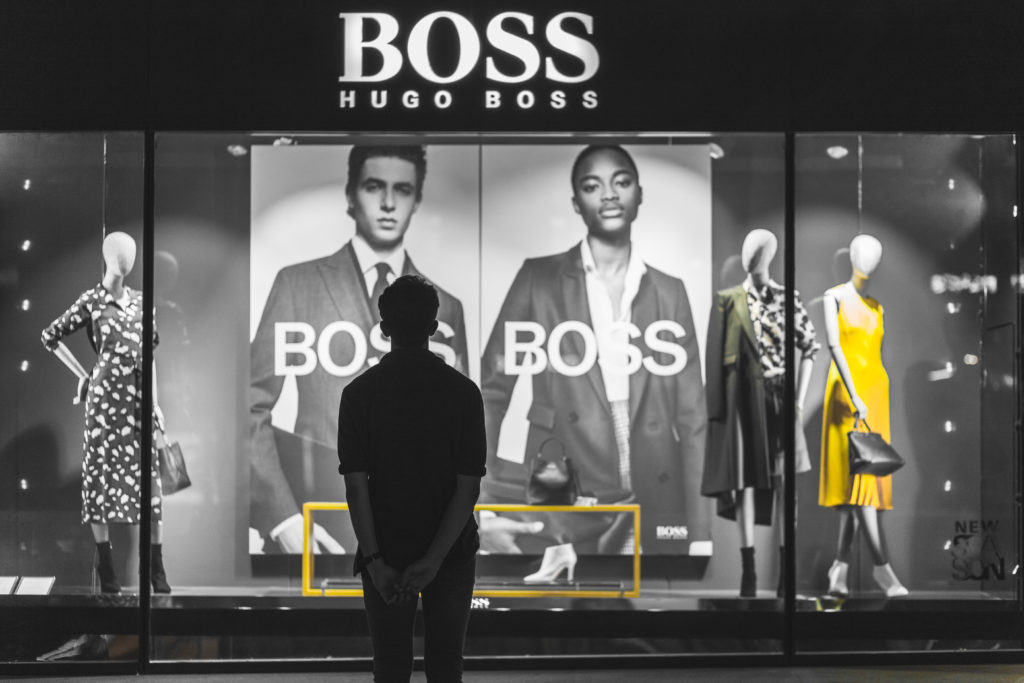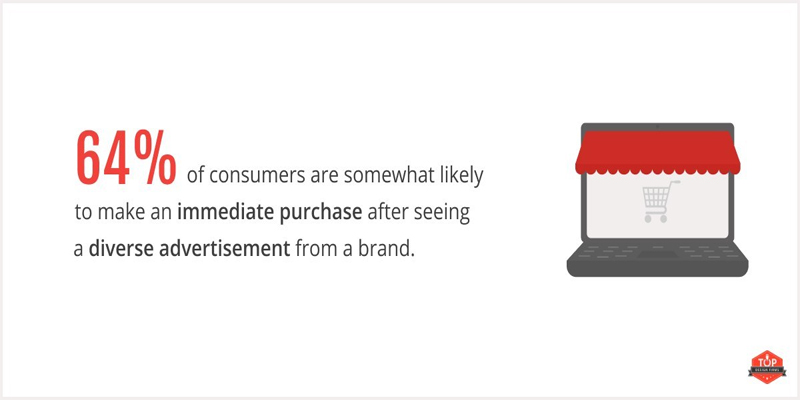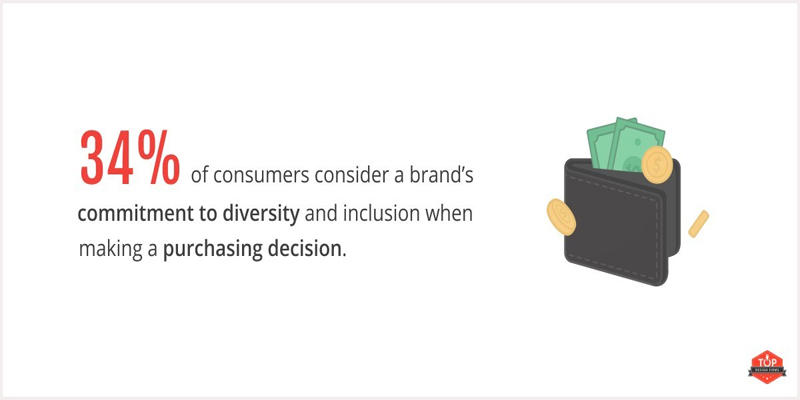The latest report from Top Design Firms has confirmed that the majority of US consumers prefer to buy from brands with diverse and inclusive advertising.
In fact, nearly two-thirds of consumers are likely to make an immediate purchase after seeing an advert they consider to be diverse. Inclusive ads also increase the likelihood of a second purchase, revealed the survey.
The financial benefits speak for themselves, according to Top Design Firms, a directory of design, marketing and development companies. Brands that develop stronger relationships with their customers by prioritising diversity and inclusion in their marketing strategies, benefit financially. Its findings agreed with 2019 data from Marketing Dive, which revealed that brands with the highest level of diverse representation in their ads saw an average stock gain of 44% across seven quarters. Additionally, 83% of consumers preferred diverse brands.

DIVERSE ADS GENERATE MORE LOYALTY
The Top Design Firms survey found that if two brands offer the exact same product, one in three consumers (34%) would consider each brand’s commitment to diversity and inclusion when making their final purchasing decision. Additionally, 64% of consumers are likely to make an immediate purchase after seeing a brand advertisement they consider to be diverse.

The study found that likelihood of an immediate purchase following a diverse ad is consistent with both White and non-White consumers. In fact diverse ads are more likely to make an impact with the majority of younger people. Around 73% of people ages of 18–34 are likely to make an immediate purchase from a brand with inclusive advertising, compared to 65% of people ages 35–54, and 61% of people over age 55. The majority of consumers (67%) are are also likely to make a second purchase from a brand they believe is committed to diversity and inclusion.
ACCURATE REPRESENTATION MATTERS
However, the findings also show that representation matters, and many companies/brands have a long way to go to accurately represent their consumers. According to the study, less than half of consumers agree with how their race is represented in social media advertisements and marketing campaigns. Only 43% believe their race is represented frequently and just 34% believe the representation is accurate.
Additionally, over half (51%) of White-identifying consumers believe that they are frequently represented in ad campaigns, compared to 35% of non-White consumers. Only 29% of non-White consumers believe their race is accurately represented, compared to 40% for White consumers.
AUTHENTIC COMMITMENT A MUST
In short, not only do diverse ads make a good first impression on consumers, but it can help brands grow their audience and strengthen their connection with customers. They also increase the likelihood of second purchases across all groups.
Consumers, however, won’t be fooled. They need to believe that the commitment to diversity and inclusion is authentic before purchasing. “I consider actual diversity rather than promoted representation when selecting brands and products,” said Pallah Burdis, a recent graduate from the Boston University School of Social Work. “Because people want to see themselves and their values represented by the brands they support, it’s important to be explicit and honest about diversity and inclusion in marketing strategies.”

Keyoka Kinzy, Content Specialist at Online Optimism, a digital marketing and design agency, agrees: “I look for brands that put their money where their mouth is and bring their values front and centre to show their customers the importance of what they believe. Companies looking to increase their brand loyalty need to prioritise diversity and inclusion in their marketing strategy to build trust and respect with their consumer base.” Read the full report here.
WALK THE TALK
Recent findings from Brands2Life, reveal that both American and European consumers are prepared to walk away from dishonest and inauthentic online brands that don’t play fair. The report entitled ‘WALK THE TALK – What consumers expect from today’s online brands’ revealed that 41% of consumers have stopped using, or are using less of, an online brand that has a poor reputation or is engaging in malpractice. Check out the article here.






































